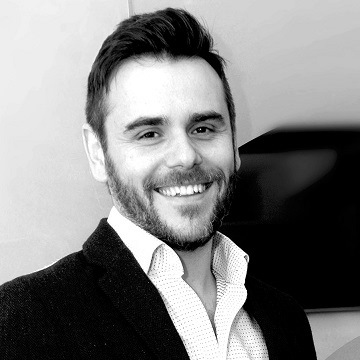
28/12/2018
Because I Care
Providing purpose in the digital world
Anthony Diver
CEO and Creative Director of Mosquito Agency
Providing purpose in the digital world
I’ve been in the digital world for decades now, but I remember the first day I ‘entered’ the mysterious and exciting internet in 1993. Feeling in awe of the gigantic world of communication and information. In hindsight it was tiny in comparison to today, enjoying a handful of webpages from thousands. In my teenage years wanting to play guitar and computer games, it was a revolution for my little world that so many people like me were wanting to put up free, shareable and valuable content - guitar chords a plenty and the chat rooms that was just a natural extension for the amateur radio enthusiast discovering life from another country. It was all very new, exciting and innocent.
For me, the birth of the consumer ready internet had begun. It felt like a whole new world, and most importantly the information, content and communication was earnest, honest and for ‘the right cause’; freely available great content. At this point I was hooked, forever exploring ways to allow connections, interaction and content collide together to form purpose to enhance our lives.
Starting within education, in ’98 I started to design e-learning tools for schools, publishers, governmental departments. It felt very worthwhile, using the internet and interactive software to help covey learning in context and simulation for all ages; it was and still is really rewarding. One project we produced was one of the world’s first social networks for schools to use technology is a positive way - to communicate better in the class room and to other classrooms around the world. We empowered small voices to be able to ask and answer big questions that matter; a presidential election, climate change, how could schools improve lives.
We’re in a digital revolution, just like the industrial revolution, that started in the city I live, Manchester UK. We’re seeing the global digital media businesses become the new cotton mill owners that dominated the world in a time gone by. With this new digital dominance, comes power to influence, inform and educate, just as the powers to deceive, mislead and encourage criminal activity all from the comfort of your armchair, bar, plane; always on and anywhere. “How could we live without it?” we all ask, whilst ‘glued’ to our screens.
It has moved us into a digital-first world, where you wake up and grab for the phone, not your alarm clock or radio. We stay up too late making sure we have the last nanosecond of your social scroll just in case you miss out on what’s going on, perish the thought it might be another innocuous selfie from a connection you’ve never met or have no sincere relationship with; just to feel part of this new thing of media where we feel if we’re not there we won’t exist.
The all-to-easy to access media consumption scrolls from our cell phones. It’s no wonder we are now in a world where even global leaders are calling out “Fake News”. Where social media and ‘news’ is flooded with celebrity gossip and embarrassing videos have become the modern-day stocks and gallows used centuries before – the era of ‘Public shaming 2.0’ perhaps. With the thousands of stories available to us in hourly basis, it’s no wonder we’re all struggling to distinguish the once clearly segmented library of content within truth, fact, fiction and entertainment; the boundaries are truly blurred…
We have become desensitised to the voyeurism from ‘reality’ TV, and the power of rich media oozing from our social feeds, we’re believing we’re controlling all of this, with the power of 140 characters and a ‘like’ button. Where have all our other emotions gone? …and we’re happy with this limitation? It helps explain why a digital world which can give you so many viewpoints and opinions, we’re limited to a binary of ‘like’ or ignore to form and persuade opinion – ‘the most likes win’ game is a one-directional trajectory of side-taking creating ‘mass opinion’ which is shaping our world around us.
Where does it stop? Where is the line between fact and entertainment? Are we now awash with so much communication that like the rule of advertising, anything said more than 3 times becomes beloved, adopted or ‘the truth’? I feel this limiting digital emotion is proving dangerous. Not everything can be expressed this way. Although we’re always connected, we’re behaviourally disconnected with the run-away train of mass media consumption – where everything is read and believed or sceptically discarded.
My passion in work and life is to make things usable, purposeful, making things easier, or enhances our lives in a small, or bigger way; purpose. Fusing technology with communication to help educate, inform or entertain. Here at Mosquito, the agency I run in the UK, we challenge ourselves to push communication, and equip communities with a purpose to engage. If there is a brief for interaction, we explore how we could allow learners, consumers or business be equipped with the tools to allow its user base to express deeply or feel autonomous. So when you go to market your message, brand, product or service, I would always challenge the purpose, the benefit and the context to provide value to the targeted audience. Avoiding crude advertising formats that litter the web with link-bait and sensationalism.
Purposeful technology within many sectors are benefitting from the digital transformation and that is truly a rewarding experience seeing a project come to fruition and see a benefit. That’s certainly a value I care about. After two decades of being in the ‘digital revolution’, experience and history tells me that the one thing we shouldn’t change is being human and behave like humans in a digital space.

AUTHOR
Anthony Diver
CEO and Creative Director of Mosquito Agency